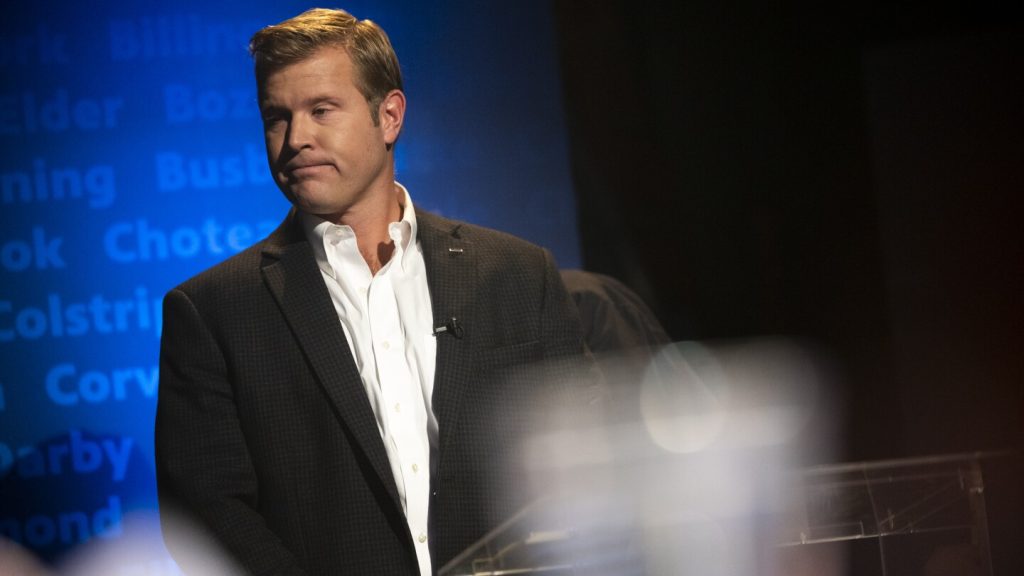Montana Republican U.S. Senate candidate Tim Sheehy recently faced backlash for derogatory remarks he made about Native Americans last year. Although Sheehy acknowledged that his comments were “insensitive,” he refused to apologize during a heated debate with his opponent, incumbent U.S. Sen. Jon Tester. Tester challenged Sheehy to apologize for degrading Native Americans with his remarks, but Sheehy attempted to shift the conversation to the immigration crisis. The exchange highlighted the growing tensions between the two campaigns as they vie for support from moderate Republican and Independent voters in Montana.
The contentious debate also saw Sheehy criticizing Tester for his ties to lobbyists, accusing him of prioritizing lobbyist interests over serving the people of Montana. Tester, on the other hand, accused Sheehy of wanting to outlaw abortion and emphasized his commitment to protecting reproductive rights. The race between Tester and Sheehy is shaping up to be the most expensive in Montana’s history, with Republicans hoping to unseat Tester in their bid to gain control of the Senate. Montana is seen as a crucial battleground state, with the outcome potentially determining which party holds the majority in the Senate.
Tester, the last remaining Democrat in high office in Montana, is facing a tough challenge from Sheehy, who has been endorsed by former President Donald Trump. Sheehy’s attempts to align Tester with President Joe Biden and Vice President Kamala Harris aim to capitalize on dissatisfaction with the administration’s handling of issues like illegal immigration. Native American voters, a traditionally Democratic-leaning bloc in Montana, have been critical of Sheehy’s derogatory comments, which surfaced in audio recordings published by a tribal news publication. Sheehy’s refusal to apologize has strained his relationship with tribal leaders in the state.
Despite Tester’s efforts to distance himself from the Biden administration on contentious issues like immigration, he faces pressure from Sheehy and Republicans who seek to tie him to unpopular policies. Tester’s stance on reproductive rights, including supporting Roe v. Wade and opposing Sheehy’s anti-abortion agenda, has garnered support from progressive voters. With the race heating up and tensions escalating, both candidates are vying for the support of key demographic groups in Montana, including Native Americans, independent voters, and undecided moderates. The outcome of the election could have far-reaching implications for the balance of power in the U.S. Senate.
As the campaign enters its final stretch, both Tester and Sheehy are ramping up their efforts to win over voters and secure a victory in November. Tester’s long-standing ties to Montana and his advocacy for key issues like reproductive rights and environmental protection contrast with Sheehy’s military background and focus on immigration and national security. The race in Montana exemplifies the broader political landscape in the United States, where contentious debates over social issues, economic policies, and national security dominate the electoral discourse. Ultimately, the voters of Montana will have the final say in deciding the future direction of their state and the nation as a whole.


